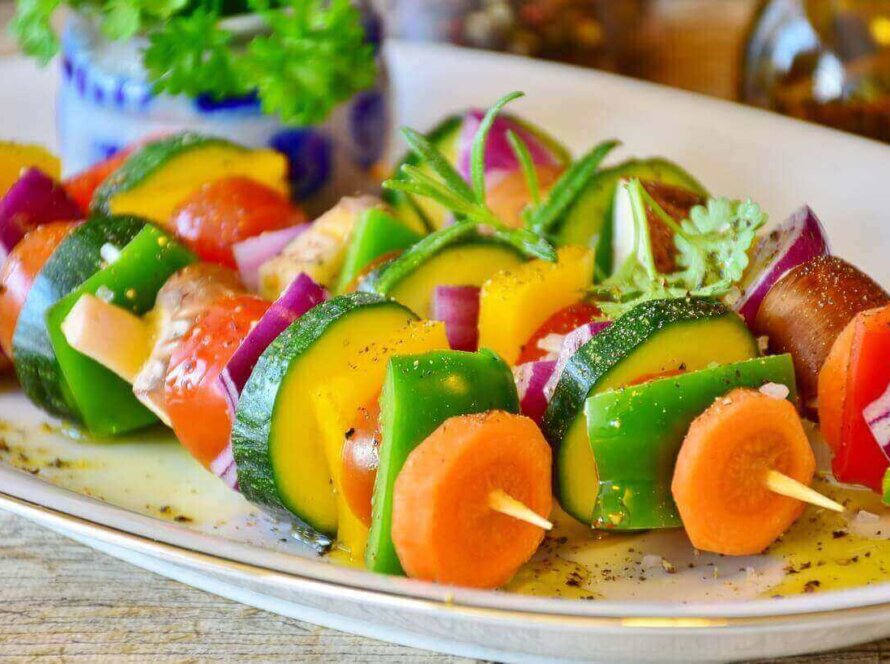Eggs are often overlooked when planning a healthy diet. There’s a reason an egg has been a staple in the human diet for centuries: they’re incredibly nutritious and versatile.
Considering that eggs are one of the most affordable foods available, it’s no wonder that they’re a staple in so many diets.
If you know their value and you are skilled in a few methods to cook them, you are set for life!
Eggs are an excellent source of nutrition and a versatile food
From boiled to fried, omelettes to scrambles, there are endless ways to enjoy this nutritious food. But what makes an egg so unique?
Let’s take a closer look at some of the benefits of including an egg in your diet.
What are Eggs and Where do They Come From?
Eggs mostly come from laying hens. Hens don’t live in semi-detached houses, they are usually kept in coops (hen houses) and produce eggs for human consumption.
Eggs can also come from ducks or geese, but these eggs are often used for other purposes, such as clothing or food supplements.
History
Eggs are one of the oldest forms of food and have a long and storied history. Eggs have been a staple in the human diet for centuries, and there are many theories about their origins.
Some people believe that eggs were first eaten by prehistoric humans who discovered them inside bird nests. Others claim that eggs were first used as a form of currency or trade.
Whatever their origin, the egg has been a part of human culture for thousands of years. They have been used as food, medicine, and even as an ingredient in religious ceremonies.
Eggs are a popular food today, and there are many different ways to enjoy them. Whether boiled, fried, or scrambled, eggs make a nutritious and delicious addition to any meal.
Other notable use cases:
- The humble egg is a popular choice of ammunition for protesters against royalty or politicians,
- Many people buy decorated ostrich eggs as ornaments,
- The traditional egg & spoon race,
- Easter egg painting,
- Easter egg hunts, and
- Starring roles in children’s rhymes.
It is still unknown which came first, the chicken or the egg…
unknown
The different types of eggs we consume
We eat many different types of eggs, but the most common is a chicken egg. Chicken eggs come in a variety of colours and sizes, and they can be boiled, hard-boiled, scrambled, poached or fried.
There are also lots of other types like duck, ostrich, quail and even caviar (sturgeon eggs) to name but a few.
The health benefits of eating eggs
Eggs are a good source of high-quality protein, and they also contain many other nutrients, including vitamin A, vitamin B12, vitamin D, vitamin E, and folate.
Eggs also contain choline, which is important for brain development.
Furthermore, these oval-shaped wonders are a good source of omega-3 fatty acids, which are beneficial for heart health.
Finally, they are also a good source of lutein and zeaxanthin, which promote eye health.
The nutritional value of eggs
According to the USDA a large one(50g) has the following nutritional value:
- Calories: 78
- Fat: 5g
- Sodium: 62mg
- Carbohydrates: 0.6g
- Fibre: 0g
- Sugars: 0.5g
- Protein: 6g
- Choline: 147mg
Different ways to cook eggs
An egg is a staple in the home cook’s diet – and not just for breakfast. They can be used to make countless recipes, from cakes and cookies to batter and even bronzing pies in the oven!
Fried
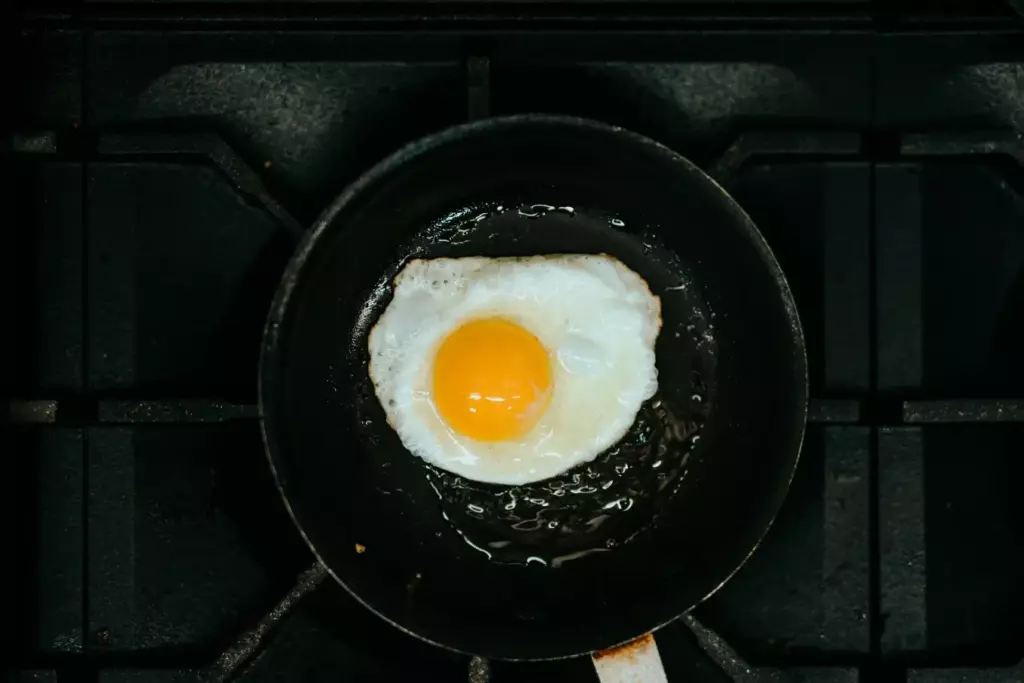
You cook a fried egg in hot oil. The egg is usually cracked into a pan, and then the edges are fried until they are crispy. The centre is usually left runny, making it a favourite breakfast food.
Have you ever heard the term “Sunny Side Up”? Well, this is when it is cooked “sunny-side-up” which means that it is fried just on one side and never flipped.
Boiled
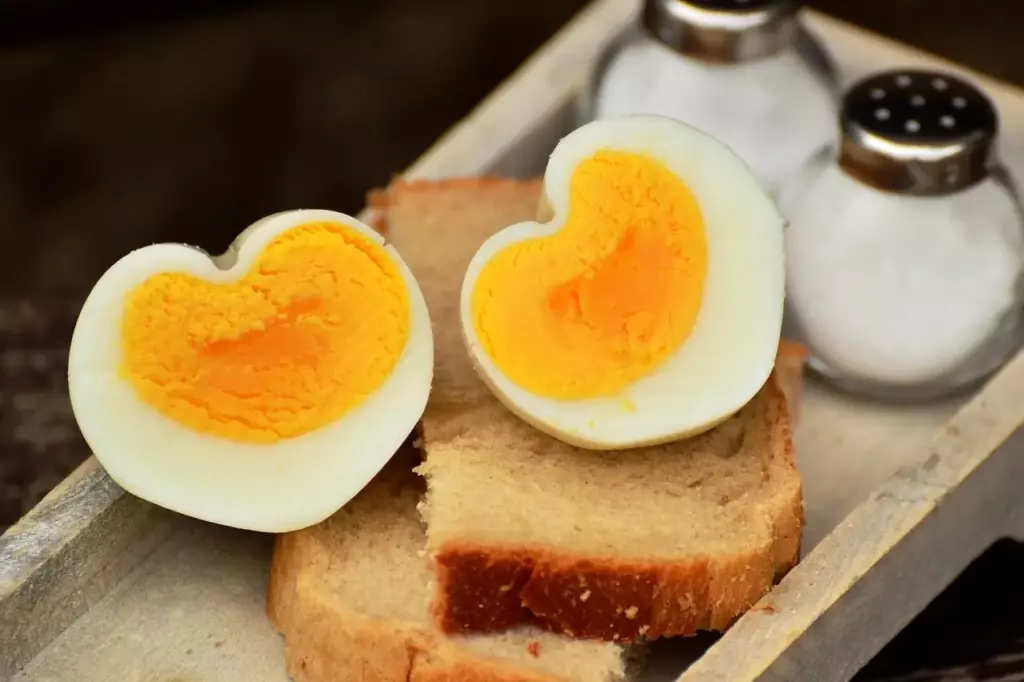
This is probably the simplest method of cooking it. A hard-boiled egg has been cooked in hot water. The eggs are usually boiled for a few minutes until the eggs are cooked through.
Hard-boiled eggs are a popular breakfast food, and they can also be used in recipes.
Poached
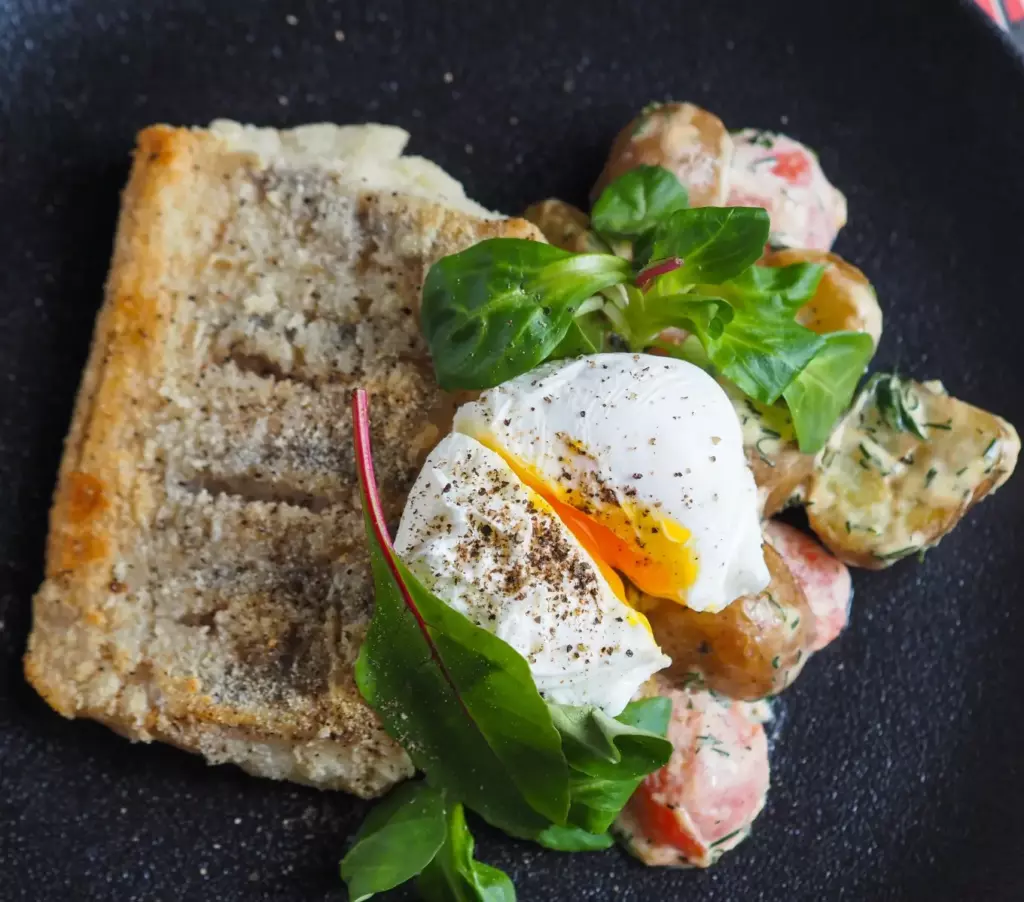
This method requires it to be cracked into a cup or bowl of any size, and then gently slid into a pan of water at approximately 75° C and cooked until the protein-rich white has mostly solidified, but the yolk remains soft.
The “perfect” poached egg has a runny yolk, with a hardening crust and no raw white remaining. It is a staple of a good eggs benedict!
The age of the eggs affects the cooking process. The whites of freshly-laid ones are less likely to disperse. With less fresh ones, the whites are more likely to disperse, so acidulating the water will assist in preventing excessive egg white dispersement.
The eggs I use for poaching are always very fresh – I get them from my local farmer. I like to use ones that are about 3 or 4 days old – that way, the whites are less likely to disperse into the water and you’re more likely to get a good result.
Adding a spoonful of white vinegar to the water will help to speed up the cooking process, and stirring the water vigorously creates a vortex which helps to keep the eggs together.
If you’re using eggs that are a few days old, then adding some acid (vinegar) to the poaching liquid is a good idea, as it helps to stabilise the albumen.
Scrambled
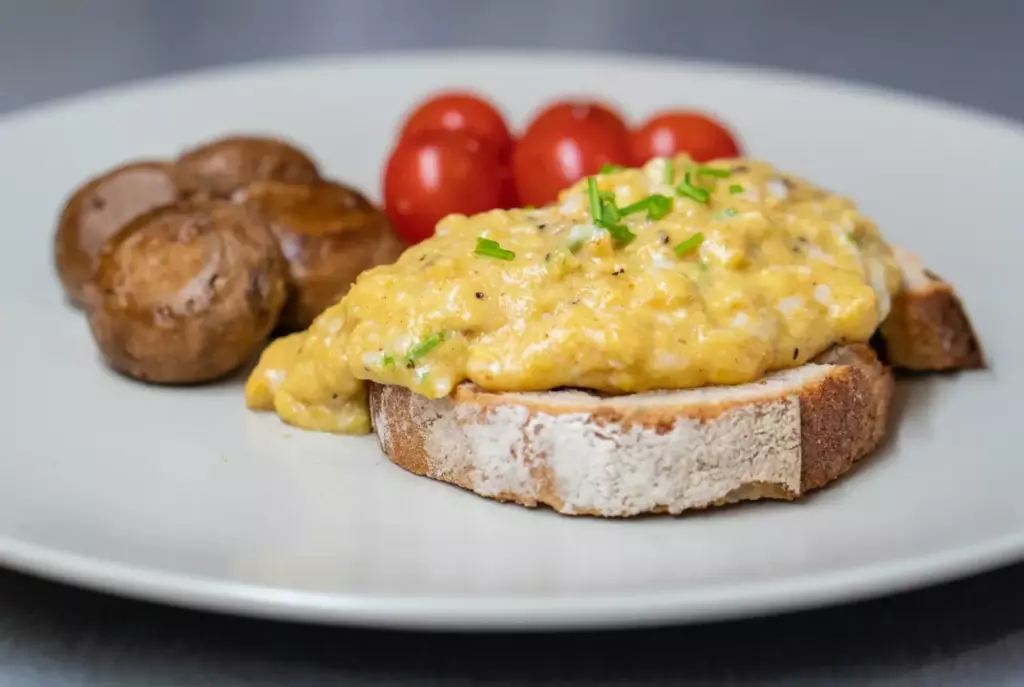
There’s nothing quite like soft, fluffy yellow goodness on a lazy Sunday morning. The great thing about scrambled eggs is that they can be cooked in so many different ways, to suit everyone’s taste.
The most classic way to make scrambled eggs is by whisking them together with a little milk or cream, and then cooking them over low heat until they’re just set. But you can also add all sorts of flavours – herbs, cheese, bacon, chorizo – the possibilities are endless!
Personally, I love my scrambled eggs nice and loose – never too dry or rubbery. But if you prefer them a little firmer, just cook them for a little longer.
Serve them with some crispy toast and a dollop of your favourite condiment (mine’s ketchup), and you’re good to go!
Fried, boiled, poached, or scrambled… Which is the best way to cook an egg?
There are many ways to cook them, but the best way is to fry them. Not everyone will agree but that is ok too.
Prepare your eggs as you like, but make sure you include them in a balanced diet!
12 Tips and tricks for cooking with eggs
1. You should cook fried eggs over low heat to prevent them from getting brown and tough…
The first rule for making just about any style of eggs is to go low and slow. I understand that crispy or browned edges are trendy right now, but if my teacher saw me presenting one she would fail instantly.
This is because traditionally speaking, tough dry fried whites aren’t what we’re going after here – they’ll taste good yes…but our goal with this dish should always remain white soft tenderization!
2. Get yourself a nonstick pan…
The nonstick pan is the perfect tool for cooking eggs. It doesn’t get very hot, and scratches easily which makes it less ideal in other kitchen tasks but an excellent choice when making breakfast or brunch!
The best part about using this type of surface? There’s no chance that your food will stick because you can always rely on these pans being super slick with oil before pouring over ingredients so they slide right off again afterwards.
Consequently, you will also save time during clean up too since nothing gets burned from overheating as normal metal surfaces do
3. Use a metal fish spatula.
Some people are convinced that metal will scratch their nonstick pans, but the thin flexible blade is what really gets under an egg with ease.
If you’re worried about scratching up your pan and have some delicate cookware on hand then coated or plastic spatulas work well for flipping foods without too much damage!
4. Check the three-digit Julian date on the carton, to see exactly how fresh your eggs are – NOT the expiration date.
The Julian date is a great way to see how fresh your eggs are. The number usually ranges from 1-365 and tells you when they were packed in order of when the package was made.
Be careful with sell-by because sometimes people use this as their actual expiry date rather than just being aware that there may come one time when all these lovely little shells of nutrition will no longer provide us with any omelette or frying pan miracles…
5. For super scrambled eggs, try passing them through a fine mesh strainer…
Instead of using a spoon, you can also blend the eggs until smooth then pass them through an oversized strainer. This will ensure that all impurities are removed and your creaminess won’t be compromised in any way!
Many top chefs swear by this technique for making sure their recipes come out perfect every single time
6. Take them off the heat before they’re done cooking…
They are delicate and cook quickly. Similar to how you would cook steaks, remove them from heat right before they’re fully cooked – the residual warmth in your pan will continue cooking it for me!
7. Keep them moving.
Your morning scrambled eggs will be creamier if you use chopsticks to stir them while they’re still hot. Don’t trust just any old wooden spoon. Get yourself some quality plastic or metal utensils instead!
8. For poached eggs, always use fresh ones and DON’T crack them directly into the water…
To avoid a mess, crack your eggs into a small bowl or ladle before adding them to boiling water. If you use fresh ingredients they will keep their shape and stay round with less fuss!
9. Older eggs are best for boiling…
Older eggs are easier to peel. The explanation is long-winded but it boils down to the fact that as time goes on their contents dry out more than fresh ones do – which makes it easier for you when peeling!
10. Cook them straight out of the fridge.
Every recipe tells you exactly how long to boil them – however, these cooking times assume you’re using cold ones. Grab your cold eggs from the fridge and use them while they’re still cold.
This will help you avoid overcooking because they sit on a shelf for too long, which can lead to yolk solidification (the whites continue cooking).
11. After boiling them, drop them in an ice bath and peel them right away – as they sit, they get harder to peel.
Peel eggs under cold, running water and always start peeling from the air pocket. (This is where a tiny bubble of gas lies trapped – removing it origami-style will prevent you from tearing open your yolk!)
12. Store any leftover poached or boiled eggs in water.
The next time you make a batch of poached eggs, don’t forget to store them in water in the fridge.
They’ll stay fresh for up two weeks and can be reheated easily by popping them into some hot water!
How to boil an egg perfectly every time
There’s no need to fear boiling eggs anymore! With these simple tips, you’ll be able to make them perfect every time.
- Fill a pot with enough water to cover the eggs by one inch.
- Bring the water to a gentle boil.
- Add a pinch of salt
- Carefully lower the eggs into the boiling water using a spoon.
- Turn off the heat and cover the pot.
- Let the eggs sit in the hot water for nine minutes.
- Remove the eggs from the pot and place them in a bowl of ice water.
- Let them cool for five minutes.
- Serve!
How to store eggs so they stay fresh for longer
Eggs are a great source of protein and vitamins, but they can go bad quickly if not stored properly. here are some tips for keeping eggs fresh for longer:
- Eggs should be stored in their original packaging in the coldest part fridge, NOT in the door.
- Eggs that have been boiled or hard-boiled should be kept in the fridge for up to a week.
- Eggs that have been cracked should be used within one day.
- Eggs that are about to expire can still be used, but they may not taste as good.
- Use raw shell eggs within 3 to 5 weeks.
- Use leftover yolks and whites within 4 days.
TIP: Storage is an important consideration for most of your food items and working out how, where and for how long to store these are probably one of the first and most important tasks of setting up your kitchen.
Get Cracking
The humble egg is complex and nutritious, full of incredible health benefits that make it well worth including in your diet. T
here are many considerations and important factors to a good diet, but ultimately protein is your number one priority and this is a good source of high-quality protein.
Different ways of cooking mean that there are endless possibilities for how to enjoy them – from simply boiled, to more adventurous dishes like poached or scrambled eggs.
Do you have a favourite way of eating eggs? Let me know in the comments below!



